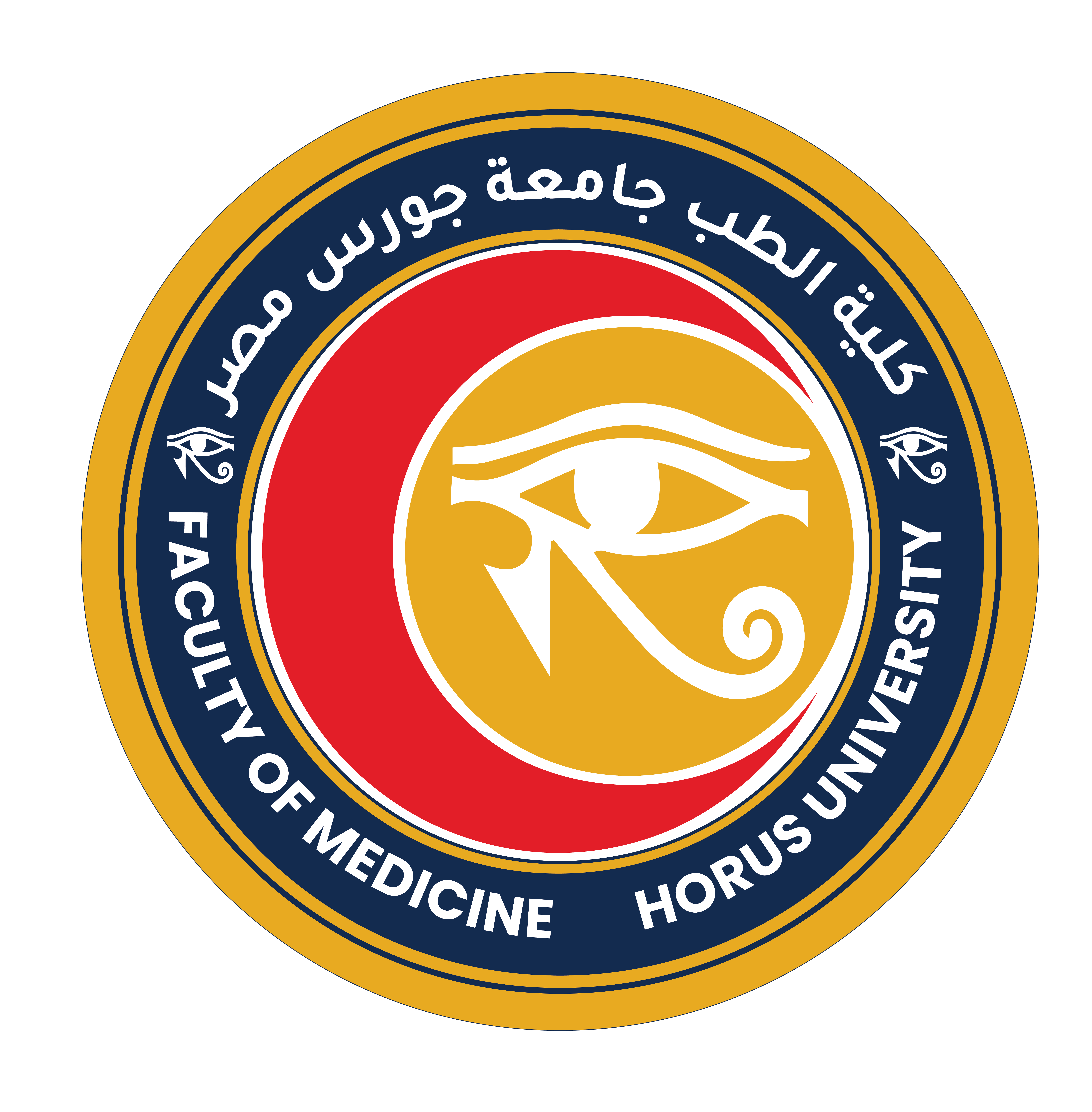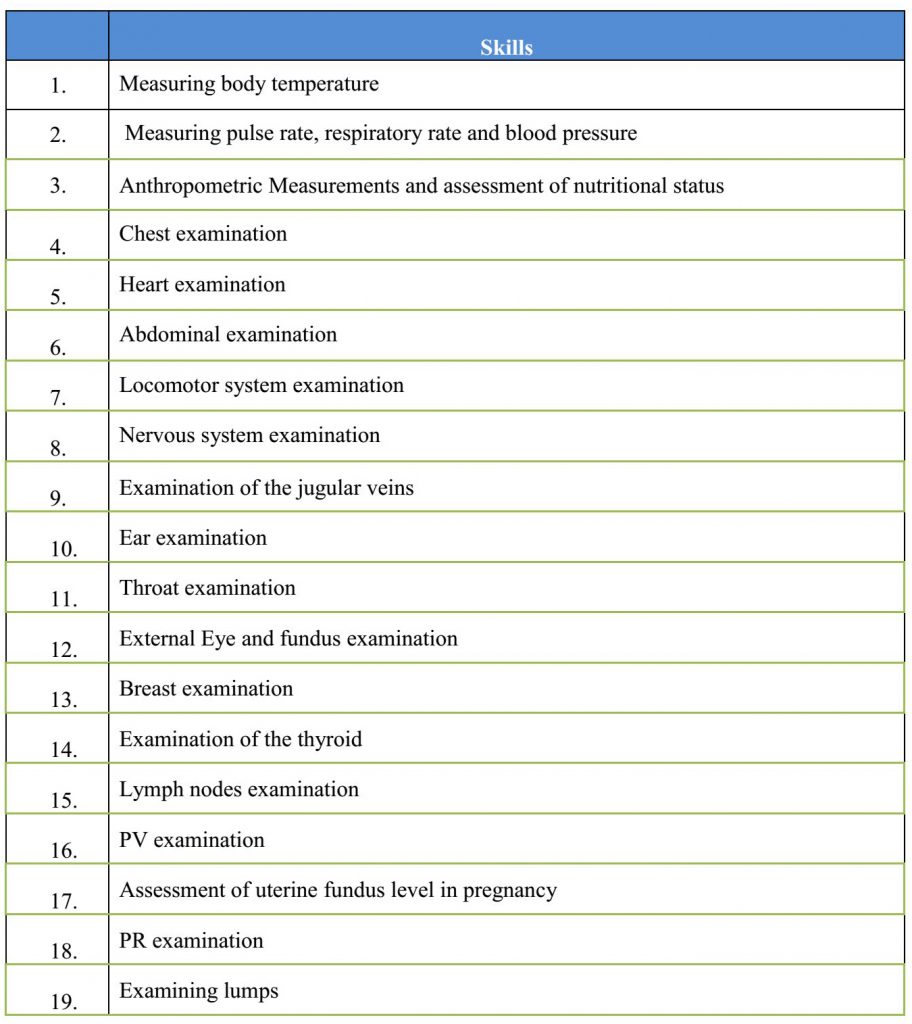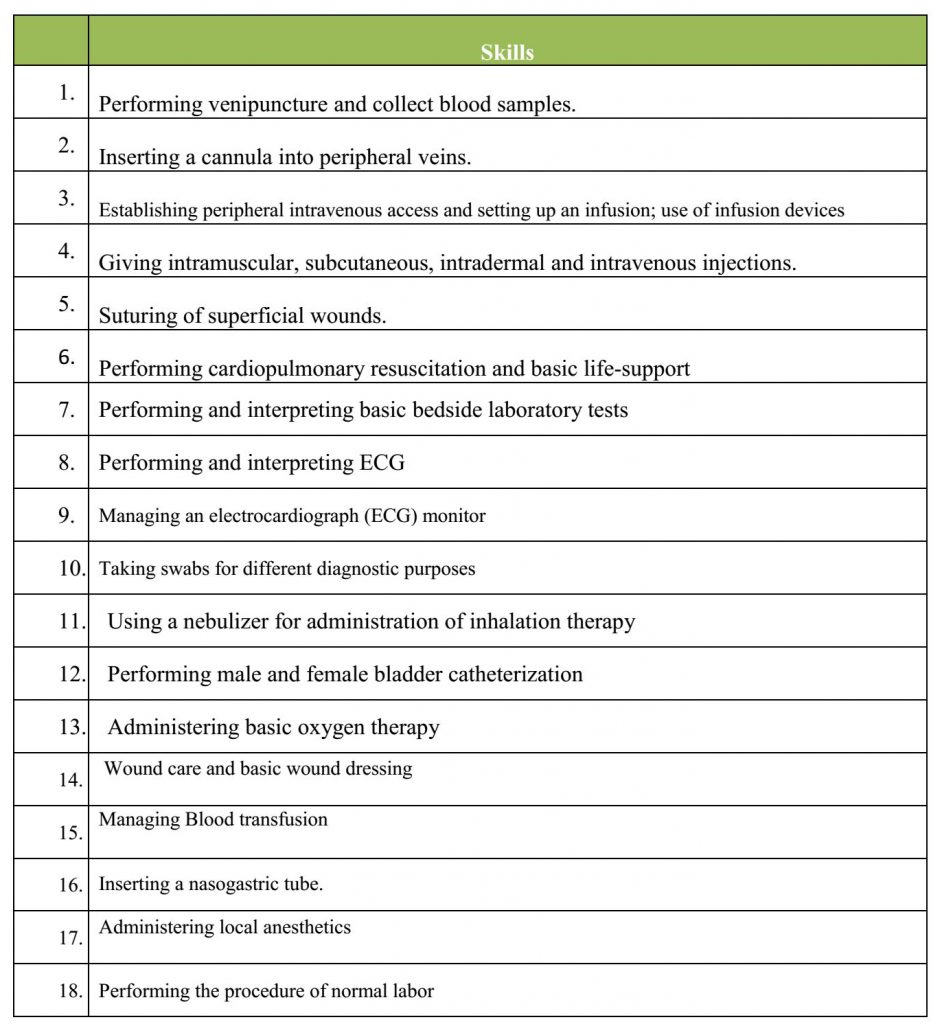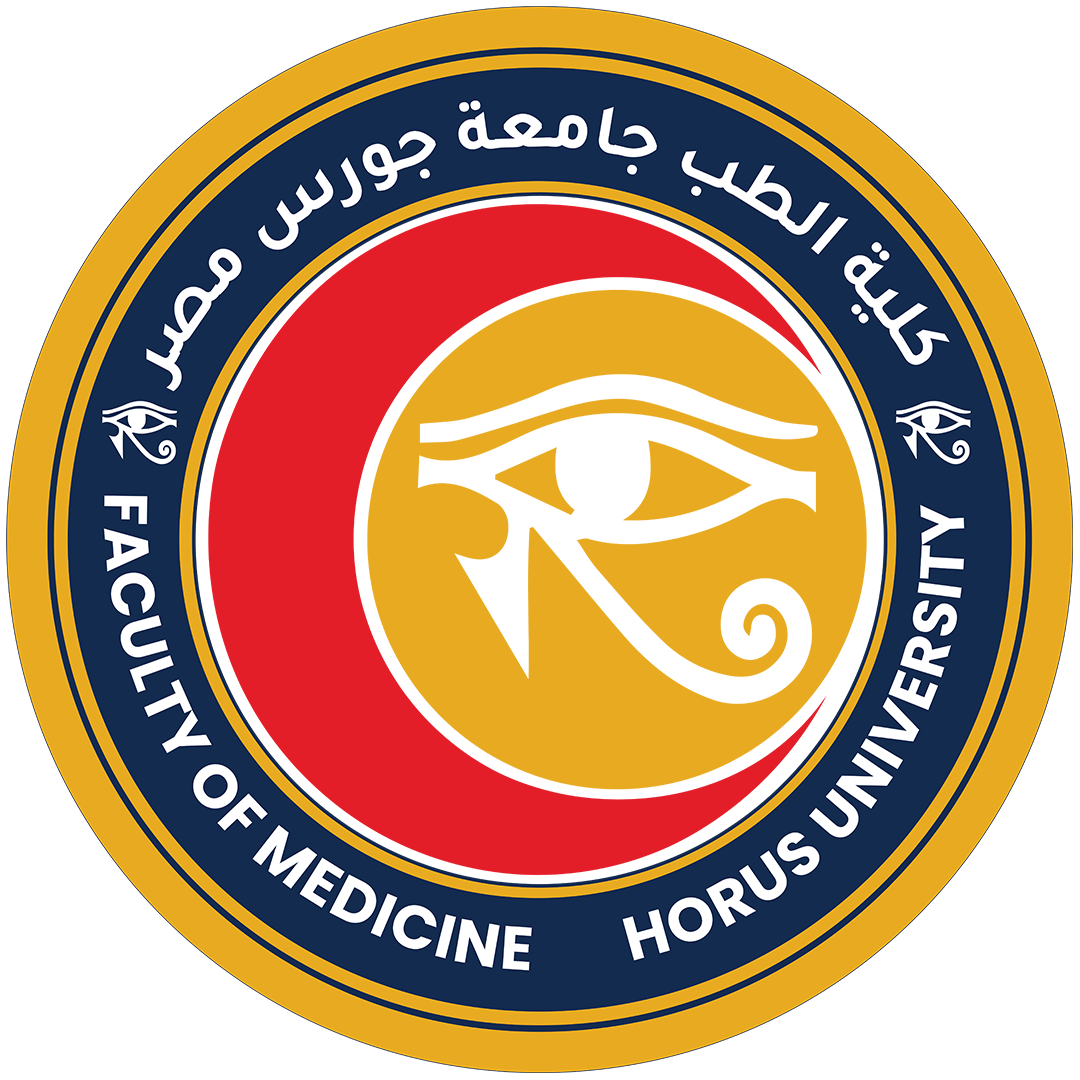عن معمل المهارات الإكلينيكية
د. أمير منير على
مدير معمل المهارات
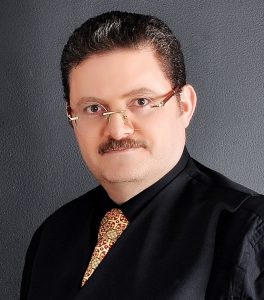
تطمح كلية الطب جامعة حورس – مصر لأن تحقق الريادة والتميز في مجال التعليم و التعلم الطبي بما يساهم في تقديم خدمة طبية مستدامة للمجتمع لتصبح كلية الطب واحدة من أفضل الكليات على المستوى المحلي والإقليمي والدولي. ولتحقيق هذه الرؤية وغايتها في إمداد المجتمع بكوادر طبية قادرة على تقديم رعاية صحية متميزة تخضع للمعايير الدولية القياسية ومؤهلة للتطوير المهني المستمر كان لابد من إنشاء معامل المحاكاة الطبية والتي تعد نقطة مضيئة في كلية الطب بحيث تضم مجموعة متميزة وفريدة من النماذج و المانيكانات التي تحتاجها جميع الأقسام الأكاديمية والاكلينيكية في عملية التعليم بالإضافة الى النماذج المستخدمة للتدريب على بعض المهارات الاكلينيكية المختلفة سواء على مستوى طلاب مرحلة البكالوريوس او لتدريب الخريجين وطلاب الدراسات العليا من داخل و خارج الكلية.
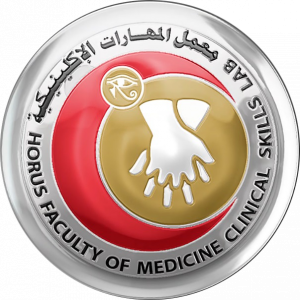
الرسالة
إكساب طلاب مرحلة البكالوريوس بكلية الطب المهارات الإكلينيكية المطلوب توافرها في الخريج بما يتلاءم مع المخرجات المستهدفة من التعلم ومع المعايير القياسية التي تتبناها الكلية وتحقيق خدمة مجتمعية متميزة من خلال تدريب فئات المجتمع المختلفة من المجال الطبي و غيرها
الرؤية
أن يصبح معمل المهارات الإكلينيكية بكلية الطب جامعة حورس الأفضل من بين مراكز المحاكاه و التدريب الإكلينيكي على المستوى الإقليمي و صولا الى الاعتماد الدولي
The country, academics and society are increasingly interested in the importance of medical education as a discipline and an independent branch of knowledge. The existence of a simulation laboratory and clinical skills training has become one of the most important pillars of medical schools in the world and the Arab world, and a number of Egyptian universities. The establishment of this laboratory at the Faculty of Medicine, Horus University – Egypt, is considered a response to this urgent need at the level of the medical profession and teaching medical sciences.
The Faculty of Medicine, Horus University – Egypt also aspires to achieve leadership and excellence in the field of medical education and learning, in a way that contributes to providing sustainable medical service to society, so that the College of Medicine becomes one of the best colleges at the local, regional and international levels. In order to achieve this vision and its goal in providing the community with medical cadres capable of providing distinguished health care that are subject to international standards and are qualified for continuous professional development, it was necessary to establish medical simulation laboratories, which are a bright spot in the College of Medicine as it includes a distinct and unique set of models and mannequins that all departments need Academic and clinical education in the educational process, in addition to the models used for training in some different clinical skills, either at the level of undergraduate students or for training graduates and postgraduate students from inside and outside the college.
Providing undergraduate students at the College of Medicine with the clinical skills required for the graduate to be in line with the intended learning outcomes and with the standard standards adopted by the college in a way that achieves the required quality and achieves distinguished community service through training different community groups from the medical field and others.
That the Clinical Skills Laboratory at the Faculty of Medicine, Horus University, becomes one of the best centers for simulation and clinical training at the regional level and up to international accreditation.
Horus Medical Skills Lab aims to develop the educational process and provides college students with clinical skills in the pre-clinical stage in preparation for dealing with the patient through the following goals and values:
- Training students in clinical skills, in the academic and clinical stages.
- Ensure that students meet all the required skills mentioned in the description of the various courses.
- Evaluating students in the skills that have been trained through the activation of modern OSCE evaluation systems.
- Emphasizing that the student is adequately trained in some clinical skills before interacting with the patient (especially in skills that cannot be practiced on the patient before making sure of their mastery).
- Determining the strengths and weaknesses of students ’skill levels, presenting appropriate proposals and means to overcome them, developing action plans, and determining the capabilities needed for them.
- Supporting the research activity based on studying the role of the laboratory in raising the educational level of students in the fields of education and training.
Enabling the college to achieve its mission and strategic goal by improving the quality of the educational process to ensure the ability of the college graduate to meet the requirements of the labor market in light of contemporary changes and challenges.
- Encouraging the principle of community participation by training community groups on various skills such as first aid and saving lives, for example.
- Gaining the confidence of the Egyptian and international community in the outputs of the educational process at the college and that they are in line with national and international standards.
- Working to open communication channels with national and international bodies that are interested in clinical training to exchange experiences in order to improve the performance of the educational process.
- Preparing and following up training programs that contribute to developing the training capabilities of faculty members.
- Cooperating with the Ministry of Health in improving the general level of physicians by providing them with the necessary clinical skills.
Strengthening the links between the university and the international and local bodies and associations in this field.
• Implementing the cooperation projects and protocols assigned to the laboratory in the field of specialization, whether by the university or from universities and other bodies, to document cultural and scientific ties.
The director of the skills laboratory is the person responsible for supervising the laboratory in a way that achieves its objectives in light of the laws, regulations and decisions regulating this, and in particular he has the authority for:
- Calling the Executive Council to convene and chairing its sessions.
- Follow up on the implementation of the established general policy.
- Approving the disbursement of rewards and incentives for workers in light of general laws and regulations.
- Addressing the external authorities and the various units within the university regarding laboratory affairs.
- Approving contracts related to the lab’s dealings with others.
- Technical and administrative supervision of the laboratory personnel.
- Striving to increase the resources of the laboratory by addressing the various parties, “projects and grants, for example, but not limited to.” The director of the laboratory has the right to address local and international bodies as a commissioner from the college with regard to laboratory affairs.
- Follow up the work performance in the laboratory and set up internal evaluation mechanisms.
- Submit periodic reports to the Executive Council on the progress of work in the laboratory.
- Developing the annual work plan for the laboratory for both students and independent courses.
- Coordination with the academic departments of the college to set the schedules for the training program for undergraduate students inside the laboratory.
- Coordination with the scientific departments and the Quality Assurance Unit to follow up the periodic training of trainers in the laboratory.
- Supervising the provision of technical support to the departments of the college with regard to training operations within the skills laboratory.
- Supervising training courses that are held inside the laboratory.
- Following up on the maintenance of models and devices in the laboratory and developing mechanisms to create sufficient income to maintain the models and provide training requirements.
- Take the necessary measures to preserve the equipment inside the laboratory during training.
- Proposing the disbursement of rewards and incentives for workers in the laboratory for approv
- al by Prof. / Dean of the College.
• Supervising the tenders, practices and other procurement methods for the lab.
- Announcing the activities of the Skills Lab in the field of clinical training.
- Other functions delegated by the Executive Council.
Courses of the Horus Clinical Skills Lab are:
1- International or local courses held by the laboratory jointly with or through contracting bodies with Horus Medical College:
– The available capabilities of the laboratory are used in holding courses according to agreements signed for this purpose and submitted to the board of directors of the laboratory for approval and presentation to the faculty council in order to maximize the laboratory’s resources and make good use of its capabilities and the training tools available in it.
2- Courses and workshops for the Skills Lab, which the laboratory holds either alone or in cooperation with internal bodies in the faculty:
A- Whoever desires, including faculty members, academic or clinical departments, or internal bodies in the college, submits a complete course project to the Director of the Skills Lab to study the possibility of implementation in the laboratory.
B – The member of the faculty who submits the course project or whoever is determined by the body presenting the course project becomes a general coordinator of the course and is the only body authorized to deal with the laboratory and the college administration in all matters pertaining to the course and which becomes its intellectual property.
C- Training is carried out by members of the faculty or the assisting body or faculty members from universities and other institutes, local or international, or international trainers who are qualified to deal with training tools and are familiar with and qualify in the field of teaching clinical skills, provided that the names and qualifications of trainers and previous training experience are presented in these courses are approved by the Laboratory Manager to maintain advanced training tools.
3- Courses and workshops for external parties and implemented in the laboratory:
– A detailed presentation of the course is submitted to the Laboratory Director, including the course coordinator, for approval, and the coordinator is responsible for dealing with the laboratory in everything related to the course. These courses are considered intellectual property of the coordinator and the course work team and are not for the skills laboratory, and therefore it may only be implemented through the approved course coordinator.

